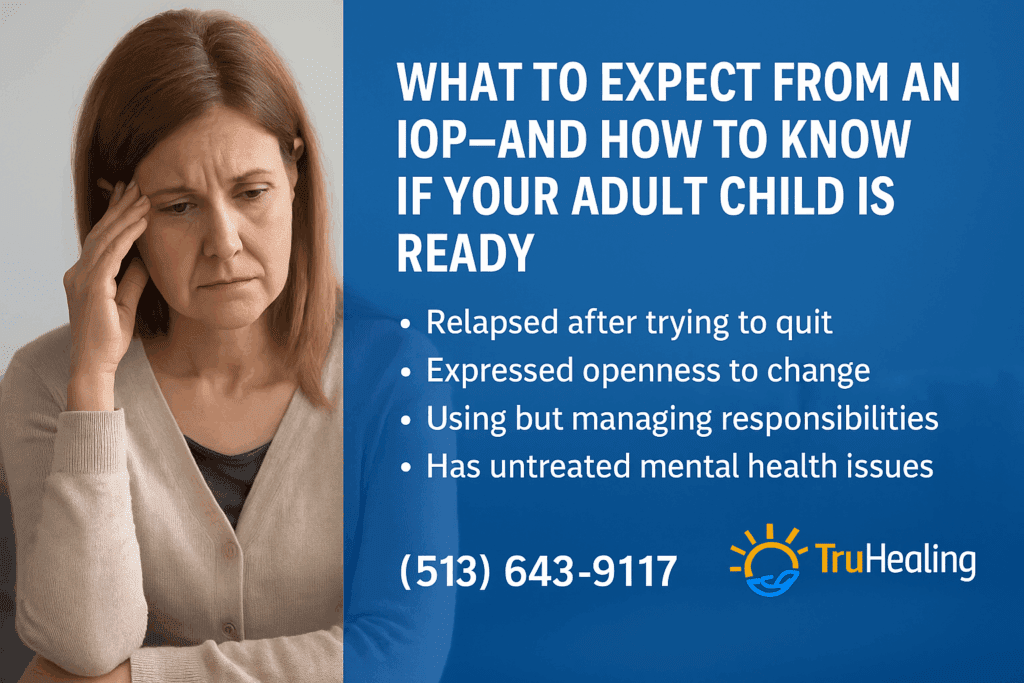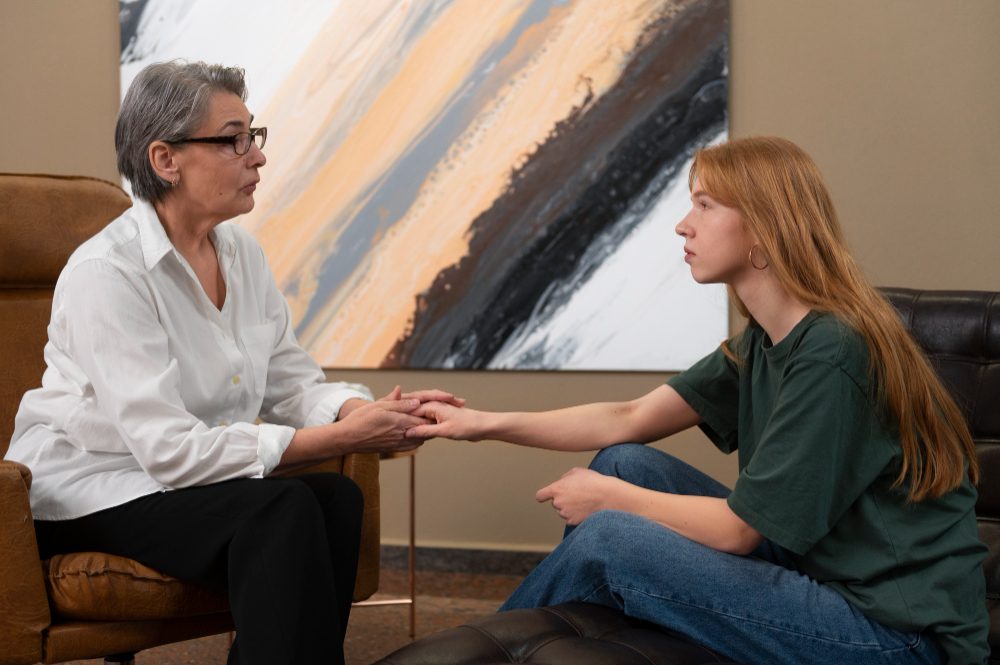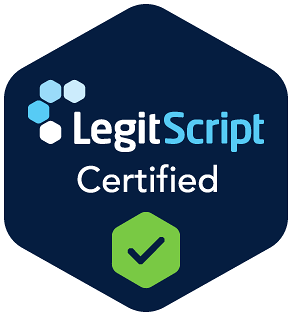When you’re the parent of an adult child struggling with addiction, you’re living in a space between love and fear. You want to protect them—but they’re not a teenager anymore. You want to trust them—but the lies and close calls have made that nearly impossible. You’re caught wondering if it’s time to intervene again… and terrified that if you don’t, something worse could happen.
One treatment option many families overlook—or misunderstand—is an Intensive Outpatient Program (IOP). You might have heard the term before in passing, or seen it online while Googling addiction treatment near me, but didn’t get clear answers about what it is or how it works.
As an addiction counselor, I want to walk you through what IOP really looks like, who it’s for, and how to tell if your adult child might be ready. And I’ll say this upfront: Even if they’re not totally on board yet, even if they’ve tried other programs before, even if they’ve relapsed—IOP can still work.
1. What Exactly Is an Intensive Outpatient Program (IOP)?
An Intensive Outpatient Program is a structured form of addiction treatment that allows clients to live at home while attending several therapy sessions per week. It’s more immersive than weekly counseling, but not as intensive as residential or inpatient care.
At TruHealing Cincinnati, our IOP includes:
- 9–15 hours of group and individual therapy per week
- Customized treatment plans based on your child’s needs and goals
- Co-occurring mental health support (for depression, anxiety, trauma, etc.)
- Drug testing and accountability measures
- Life skills training and relapse prevention
- Optional family therapy or educational support
Treatment typically occurs three to five days per week, with flexibility for work or school schedules.
In short, IOP offers the clinical depth of a rehab program—without requiring your child to pause their entire life.
2. Is IOP Right for My Child?
If your son or daughter is in crisis—physically unsafe, experiencing withdrawal symptoms, or unable to function day-to-day—then inpatient detox or residential care may be more appropriate.
But if they’re stable enough to live at home, show some level of motivation to get better, and could benefit from structured, consistent support, IOP may be the ideal fit.
Here are signs that IOP might be the right choice:
- They’ve tried quitting on their own and relapsed
- They’ve expressed any openness to change
- They’re using substances regularly but still managing basic responsibilities
- They have untreated mental health issues driving their substance use
- Inpatient care feels like “too much,” but weekly therapy isn’t enough
At TruHealing, we specialize in treating people who don’t always fit the mold—those who are high-functioning but quietly falling apart.
3. What Should I Expect as a Parent?
Even though your child is technically an adult, your role in their recovery is still significant. One of the strengths of our IOP at TruHealing Cincinnati is that we work with families, not just individuals.
Here’s what we offer parents:
- Education: Learn what addiction is, how it works, and how recovery actually happens.
- Support: We guide you through setting boundaries, managing expectations, and taking care of yourself.
- Communication Tools: We help repair strained relationships and teach skills for healthier conversations.
- Updates (with consent): With your child’s permission, we keep you informed of their progress and challenges.
IOP helps your child—but it helps you too. Because addiction doesn’t just affect the person using. It affects the entire family system.

4. What If My Child Doesn’t Think They Need Treatment?
This is probably the hardest part. You see the danger. They see a lifestyle they think they’re managing.
Denial is part of the disease.
But readiness isn’t always about hitting rock bottom. Sometimes it’s just about a moment of openness—a crack in the wall. That’s your entry point.
Here’s what we recommend:
- Lead with compassion, not confrontation: Instead of “You need treatment,” try “I’m scared, and I think this program could really help. Can we talk about it?”
- Offer options: Give them a specific program (like our IOP) to consider. Make the path clear.
- Don’t wait for total buy-in: Many clients start IOP unsure if they even want to stop using. What matters is that they show up. Motivation can grow in treatment.
- Let us help with the conversation: Our admissions team can walk you through how to approach your child with care and credibility.
5. What Happens After IOP?
Think of IOP as the foundation—not the whole house. When your child completes the program, we help build their next steps:
- Step-down care: They may move into a less intensive outpatient program with continued support.
- Mental health continuity: If they need ongoing therapy or medication, we’ll coordinate that.
- Peer support: We’ll connect them with recovery communities, alumni programs, and 12-step or alternative support groups.
- Life rebuilding: Career counseling, education support, housing guidance—whatever they need to stay on a healthy path.
Long-term recovery isn’t a one-time decision. It’s a process of support, structure, and small steps—taken one day at a time.
Frequently Asked Questions (FAQ)
What makes IOP different from regular therapy?
Traditional therapy is usually once a week, which may not be enough for someone in active addiction. IOP offers more frequent contact, group dynamics, real-time accountability, and a structured treatment plan tailored to recovery.
Can my child work or go to school while in IOP?
Yes. That’s one of the major benefits. We design schedules that allow clients to maintain responsibilities while attending treatment—especially important for adults who can’t step away for residential care.
What if my child has relapsed before?
Relapse is not failure—it’s information. Many of our clients come to us after previous treatment attempts. What matters is trying again with the right support system. Our program emphasizes compassionate accountability, not shame or punishment.
How involved can I be as a parent?
With your child’s permission, we offer family therapy, education sessions, and regular check-ins. We believe healing is most effective when the family grows together, not apart.
How do I start the process?
Call us at (513) 643-9117 or visit our IOP program page. We’ll walk you through everything—insurance, assessments, next steps. You don’t have to do this alone.
You’re Not Just a Parent—You’re a Lifeline
If you’re reading this, chances are you’re carrying more than one heart—yours, and your child’s. That’s heavy. But you’re not powerless.
There is hope. There is help. And it doesn’t always have to mean packing a bag and disappearing into a 30-day program. IOP is a flexible, proven way to begin the healing process—without breaking everything to do it.
Let us help you help your child.
📞 Ready to Take the First Step?
Call (513) 643-9117 or click here to explore IOP options in Cincinnati. Our team at TruHealing is here to listen, guide, and support—one honest step at a time.


